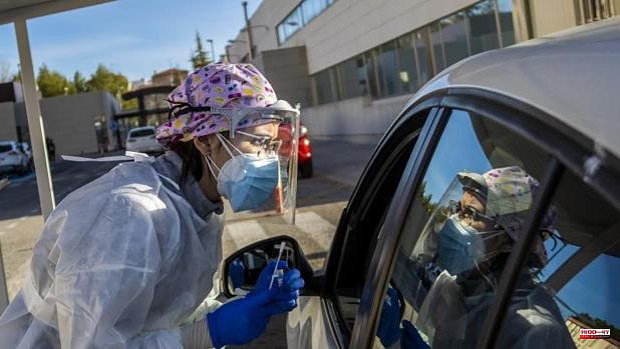The epidemiological situation due to the coronavirus in the Valencian Community returns to levels registered during the past month of February. Some data that is beginning to worry health experts before the arrival of a seventh wave of infections caused by the latest mass contacts at parties and celebrations, as well as the residual use of the mask in closed spaces.
As reported by the Ministry of Health in its latest balance, since Friday there have been 4,479 positives for coronavirus and four deaths. However, the substantial growth in healthcare pressure is striking, since since last Tuesday it has increased by 200 patients to reach 905 admitted, 35 of them in the ICU.
In addition, according to the update of the Ministry of Health, the accumulated incidence rate in people over sixty years of age has risen another 63.63 points since Friday and now stands at 559.48 cases per hundred thousand inhabitants of the Valencian Community. .
However, it is still below the national average, which amounts to 842.27 positives.
[The keys of Margarita del Val and Fernando Simón to face the next pandemic after the coronavirus]
Thus, the authorities warn of the arrival of new variants of Ómicron in Europe and Spain, with a greater capacity to spread than its previous versions. Even the renowned Margarita del Val warned of a possible rise in cases in winter if air filtration in covered spaces is not improved.
According to the latest indications approved by the Ministry of Health, in the general population confirmed cases will not go into isolation and close contacts will not go into any type of mandatory quarantine.
However, up to ten days after the onset of symptoms or the date of diagnosis, you should take extreme precautions and reduce social interactions as much as possible by using the mask constantly. In addition, it is important to avoid contact with vulnerable people such as the elderly as much as possible, as well as not attending crowded events.
People who work in vulnerable areas, such as health centers, social health centers, prisons and others with institutionalized people, will not go to their workplace during the first five days from the onset of symptoms or from the date of diagnosis in the case of asymptomatic people .
[Pedro Cavadas's forecast on what will happen with the coronavirus and vaccines after the summer]
After this time, and provided that one day has elapsed since the disappearance of the fever or improvement of the symptoms, an antigen test must be carried out and if the result is negative, you can return to your workplace. If it is positive, the test can be repeated every 24 hours until a negative balance is obtained.
Regarding the follow-up of cases with mild symptoms, if you suffer a worsening such as a fever greater than 38 degrees for more than three days or difficulty breathing, it is advisable to contact the health system, either at the health center or at number 112.
In relation to the treatment with close contacts of coronavirus positives, the pertinent identification will only be carried out in the areas considered vulnerable. In these cases, they will be instructed to carry out a diagnostic test after five days of follow-up, but they will not be required to quarantine.
[Virologist Luis Enjuanes warns of a 99% loss of the efficacy of coronavirus vaccines]
As a recommendation, Health marks that during the ten days after the last exposure, extreme precautions are taken and interactions with other people -especially vulnerable- are reduced as much as possible, that they constantly use the mask and that they maintain adequate hand hygiene. .












